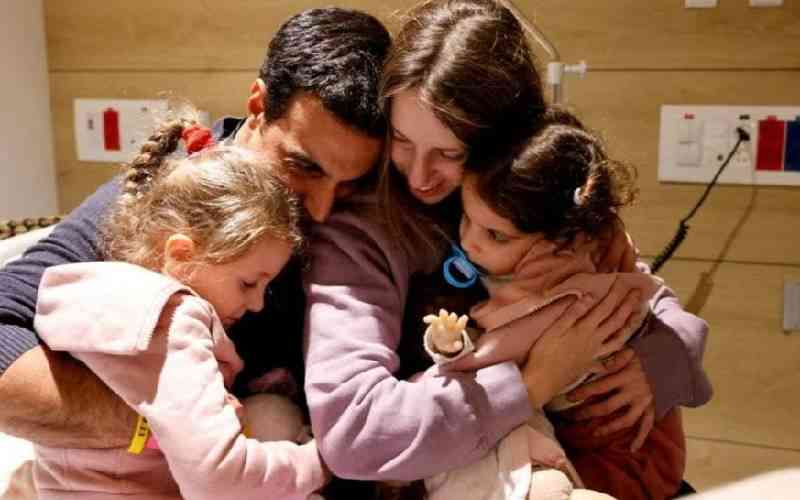×
The Standard e-Paper
Smart Minds Choose Us

Seventeen hostages were released by Hamas late Saturday and returned to Israel where they were taken to hospitals for observation and reunited with their families, the Israeli military said.
The joint announcement by the Israeli military and the Shin Bet security service came after the prime minister's office said in a statement that the government "embraces the 17 hostages that are returning home, 13 of our citizens and 4 Thai citizens."